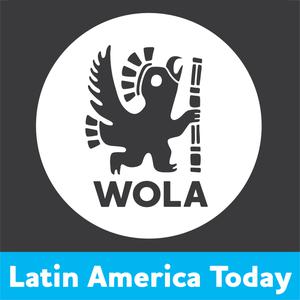
- 51 minutes 20 secondsAuthoritarianism, Resistance, and Repression: What's Next for Venezuela?
The director of WOLA’s Venezuela Program, Laura Dib, joins the podcast to discuss the political, human rights, and diplomatic reality following Nicolás Maduro’s January 10 inauguration. Maduro’s new term begins amid severe tensions, as he plainly lost July 28, 2024 presidential elections and has employed waves of repression, including rounding up and in some cases forcibly disappearing political prisoners, to deny the result.
Despite the context of repression and intimidation, Laura underscores that on January 9 Venezuelans still took part in 157 reported protests, including one with the participation of opposition leader María Corina Machado, who is in hiding. The response was further crackdowns, including the temporary detention of María Corina, the enforced disappearance of the son in law of the election’s true winner Edmundo González Urrutia, and the enforced disappearance of Carlos Correa, director of NGO Espacio Público, who was recently released after being missing for nine days.
With repression worsening and space closing for civil society—particularly through implementation of a harsh new NGO law—it is difficult to perceive a path forward. Laura emphasizes, however, the remaining areas of hope; possible cracks within the ruling coalition, significant consensus within the international community, and the persistent bravery of Venezuela’s civil society and diaspora. Laura acknowledges the complexities of the deep-rooted corruption and private sector ties that make Maduro’s hermetic regime difficult to assess and counter.
She also discusses the confused and contradictory nature of the new Trump administration’s likely approach to Venezuela. A transactionally minded president uninterested in democracy promotion is leading a group of officials with different, and potentially clashing, priorities: some are staunchly “anti-communist” but others are focused on stopping migration and enabling deportations to Venezuela.
Laura also discusses the complexities of sanctions, economic collapse, and Venezuela’s relations with its neighbors. The episode ends with a strong call for the international community to focus its efforts on supporting Venezuelan civil society and preserving the civic space that exists.
For more up-to-date information, read Laura Dib’s commentary “Venezuela: Authoritarianism and Resistance”; a commentary by Carolina Jiménez, President of WOLA, “Venezuela between repression and resistance,” and watch WOLA’s recent event, “Autoritarismo y Resistencia: Análisis de la Situación en Venezuela.”
24 January 2025, 3:00 pm - 48 minutes 9 secondsFrom Promise to Pressure: Bernardo Arevalo’s First Year in Power
In this podcast episode WOLA’s Central America Director, Ana María Méndez Dardón, reflects on Bernardo Arevalo’s first year in office, as January 14, 2025 marks one year since the inauguration that followed his unexpected election.
As we discussed with Ana María in a podcast episode shortly after his inauguration, Bernardo Arevalo and his Semilla party had a very difficult time reaching inauguration day, notably due to active obstruction from Guatemala’s traditional, ruling elites, including the Attorney General’s Office. While citizen mobilization, largely indigenous groups’ mobilization, made it possible for Arevalo to democratically take office, the difficulties he and his party faced back then have remained, making it difficult to govern and, in turn, negatively affecting his popularity due to unmet expectations.
Three prominent obstacles that the Arevalo administration will continue to face from his first year to his second, Ana María highlights, are the office of the Attorney General and the powerful presence of other known corrupt actors within the government; the instability of his cabinet paired with a small presence of his party in Congress; and the powerful private sector’s ties to corrupt elite groups.
The Attorney General’s office has played an active role in blocking access to justice and promoting the persecution and criminalization of those who have been key to anti-corruption and human rights efforts, while maintaining the threat of forcibly removing Arevalo from office. Although Attorney General Consuelo Porras was sanctioned by the United States, along with 42 other countries, for significant corruption, Arevalo has determined that removing her would violate constitutional norms. (Her term ends in May 2026.) Ana María also notes alliances that Porras has cultivated with members of the U.S. Republican Party.
Despite the obstacles, Ana María notes possibilities for growth, including the launch of an alternative business association, a new national anti-extortion effort, and negotiation efforts with Congress.
Ana María also touches on the U.S.-Guatemala bilateral relationship during the Biden administration and expectations for the Trump-Arevalo relationship. During the Biden administration, it was evident that security and economic issues were top priorities, with notable bilateral engagement including multi-sectoral and multi-departmental efforts led by the Office of the Vice President to address the root causes of migration. It is uncertain whether the Trump administration will continue these efforts, and while some Republicans regard Arevalo as a strong democratic ally, the migration issue, particularly the incoming Trump administration's plans to deter and deport migrants, may be the topline item in the bilateral relationship.
To follow Guatemalan developments, Ana María recommends independent media including Plaza Pública, Con Criterio, and Prensa Comunitaria.
14 January 2025, 3:00 pm - 1 hour 1 secondThe Work of Urban Peace Continues in Colombia, Despite Frustrations
WOLA’s director for Colombia, Gimena Sánchez-Garzoli, is just back from taking a U.S. congressional delegation to Colombia. In addition to Bogotá, the group visited Cali and the Pacific Coast port of Buenaventura.
The latter two cities are in the department of Valle del Cauca, Colombia’s third most populous. Much of the population is Afro-descendant, and Buenaventura, on the coast is majority Black.
Buenaventura has a vibrant and resilient array of community organizations that has played a greater role in local governance since a 2017 general strike. The government of Gustavo Petro, which took office in 2022, has fostered a negotiation between gangs operating in the city, part of its nationwide “total peace” policy.
As at the national level, the results are mixed. The Petro government has sought to move forward many negotiations at once, and some are stalled. Implementation of the 2016 peace accord with the FARC suffers from bureaucratization and lack of organization more than from lack of political will. Rural areas are especially challenged: armed groups are strengthening in some areas, and the humanitarian situation has hit emergency levels all along Colombia’s Pacific coast. The election of Donald Trump may presage a U.S. administration urging a return to failed hardline approaches of the past.
Still, Gimena sees hope in urban, participatory peacebuilding efforts in places like Buenaventura, Medellín, and in Quibdó, the capital of Chocó. The remarkable resilience and persistence of Colombia’s civil society, including Afro-Colombian and Indigenous communities in and near Valle del Cauca, continue to be a source of inspiration and innovation.
13 December 2024, 2:30 pm - 1 hour 21 secondsA Tariff Threat Foreshadows U.S.-Mexico Relations During the Second Trump Presidency
On November 25, President-Elect Donald Trump announced via social media that he would impose a 25 percent tariff on all imports from Mexico and Canada unless migration and fentanyl trafficking ceased entirely. The announcement caused widespread alarm, spurring a flurry of responses and an unclear conversation between Trump and Mexican President Claudia Sheinbaum.
The event was instructive about what we might expect after Trump assumes the presidency in January, observe WOLA Director for Mexico Stephanie Brewer and Director for Drug Policy John Walsh.
Brewer explained the "tariff threat" incident, how it plays into the political agendas of both Trump and Sheinbaum, and the danger of doing serious damage to a multifaceted, interdependent bilateral relationship.
Host Adam Isacson, who covers border and migration policy at WOLA, joined the discussion to point out that Trump seeks to bully Mexico into carrying out a crackdown on migration that has, in fact, already been underway for some time with serious human rights implications.
Walsh observed that demands on Mexico to crack down on fentanyl threaten a reversion to supply-side, prohibitionist approaches to a complex drug problem that not only haven't worked over the past 50 years, but may in fact have ceded much control to armed and criminal groups.
The U.S.-Mexico border, and the bilateral relationship, may be marked by these episodes of threat and bluster for much of the next few years. Weathering this period will require civil society in both the United States and Mexico to play an aggressive role, demanding "steadiness, focus on facts, keeping things grounded in reality," and never losing sight of what better migration and drug policies would look like.
5 December 2024, 8:00 pm - 41 minutes 52 secondsWhat Trump’s Return Means for Latin America
This episode was recorded three days after Donald Trump won the 2024 presidential election. It brings together WOLA’s president, Carolina Jiménez Sandoval, Vice President for Programs Maureen Meyer, and Director for Defense Oversight Adam Isacson. Together, they possess a combined seven decades of experience working on human rights, democracy, and U.S. policy toward Latin America. All worked on these issues, plus borders and migration, through the first Trump administration.
Maureen, Carolina, and Adam discuss what Trump’s win means for democratic backsliding and relationships with authoritarian governments region-wide, as well as for migration policy, drug policy, cooperation with Mexico, and U.S. foreign aid and security programs.
Both Maureen and Carolina emphasize the importance of journalists, human rights defenders, advocacy groups, and other elements of civil society. Their role in protecting checks and balances and promoting accountability has never been more crucial. The civic space that they need to do their work is at great risk of closure amid attacks on independent media, disinformation, and threats of retribution emanating from the president-elect and his allies.
They note that a Trump presidency will probably reverse the U.S. government’s uneven but improving record as a force helping to shore up democratic rule, which has been eroding in the region and worldwide. Guatemala—where the presence or absence of U.S. support has been crucial for fair elections and anti-corruption efforts—is a key example. The incoming administration’s transactional, ideological stance risks withdrawing support for democratic rule, empowering autocrats with severe consequences for basic rights.
While the Biden administration curtailed access to asylum and did little to improve accountability for U.S. border forces’ human rights abuses, Maureen, Carolina, and Adam warn that Trump’s plans for the border and immigration could indelibly stain the United States. The president-elect’s proposed policies—closing migration pathways, “mass deportation,” militarization of border security—threaten to cause mass suffering and greatly complicate U.S. relations with Mexico and other regional governments.
Humanitarian organizations on the border, migrant shelters, and legal service providers, they point out, are especially in need of solidarity as they are now at risk of being targeted on a federal level, as Texas’s government has sought to do at the state level.
Carolina recalls that “WOLA has survived for over 50 years because we are part of an ecosystem that is under threat but resilient… It's time to stick together and support each other and to do our work with more commitment and more energy than ever.”
Adam adds, “Times like these are the reason we exist… Stay with us.”
Thank you for listening, and take care of yourself and your community.
9 November 2024, 3:00 pm - 1 hour 4 minutesMexico's Constitutional Reforms: a Setback for Checks and Balances
In September 2024, Mexico’s legislature quickly approved a series of constitutional reforms at the behest of outgoing president Andrés Manuel López Obrador. The revisions, among other things, fundamentally change the nature of the country’s judiciary and fundamentally and permanently change the role of the armed forces in public security.
Under the overhaul of Mexico’s judiciary, citizens will now directly elect all judges, increasing the likelihood of eroding the judicial branch’s independence. That, in turn, could complicate accountability for organized crime activity, corruption, and human rights abuses.
Another reform places the National Guard, a recently created internal security force whose members are mostly former soldiers, directly within the Defense Ministry. This further cements significant increases in military participation in internal security, immigration control, public works, and the economy during the López Obrador administration.
These changes pose likely setbacks to the struggle to hold people and institutions accountable for human rights abuse and corruption, and they threaten to weaken the quality of Mexico’s democracy.
In this episode, WOLA’s director for Mexico, Stephanie Brewer, and Lisa Sanchez, the director of México Unido Contra la Delincuencia (MUCD), explain the constitutional reforms and their likely consequences.
“This particular constitutional reform fully militarized public security at the federal level by turning the National Guard into a fourth armed force,” said Sánchez. “What we did was to fully and permanently militarize public security at the federal level in Mexico for good.”
While these reforms are not a “fatal blow” for Mexico’s democracy, Brewer pointed out, they create even more adverse conditions for “victims, survivors, family members, civil society, NGOs, and others” working for rights and justice in the country. “They really need our attention, and our support from the international community. We need to be listening to their voices.”
- From WOLA: Judicial Reform in Mexico: A Setback for Human Rights (Español)
- From MUCD: Reforma de Guardia Nacional concreta estrategia militarista; la democracia está en riesgo; Recursos sobre la militarización
21 October 2024, 6:32 pm - 48 minutes 52 secondsReimagining the Drug War Amid Rising Coca Cultivation in Central America
This podcast episode features Kendra McSweeney and Fritz Pinnow, part of a team investigating a new trend: the emergence of coca cultivation in Central America.
McSweeney, a professor of geography at Ohio State University, has research human-environment interactions, cultural and political ecology, conservation and development, resilience, demography, and land use/cover change. Pinnow is a Honduras-based journalist and documentary photographer specializing in illicit economies, violence and development in Central America.
McSweeney and colleagues have published an article in the journal Environmental Research Letters examining the recent and growing appearance of coca leaf cultivation in Central America, a crop historically associated with the Andean region. McSweeney and Pinnow discuss the environmental and market conditions driving coca cultivation in Honduras and Guatemala. They note that those attempting coca cultivation in the region have competitive advantages over Colombian growers, such as more favorable growing conditions.
They stress that it would be a serious error to respond to this phenomenon with another forced eradication program. Past crop-eradication strategies, which have almost always been uncoordinated with governance, rule of law, basic services, land formalization, or anti-poverty efforts, have failed and in fact ended up encouraging the planting of coca in new areas.
The drug trade, McSweeney and Pinnow state, gains much of its power and wealth from the price premium made possible by the coca plant’s illegality. The inflated prices make it very difficult to offer viable economic alternatives in poor rural areas. “Current drug policy,” McSweeney says, “systematically undermines any other efforts at rural or urban development in these countries.”
“If we’ve learned anything from supply side drug control in South America, it’s that eradicating coca crops and trying to shut down trafficking organizations, and trying to shut down the cartels, and trying to go after the Pablo Escobar’s and their successors– it generates a lot of Netflix content, but it doesn't do anything to reduce the amount of drugs that make it into the United States and other countries… What we’ve seen from these approaches and after 40 years of the drug war and billions of dollars spent to eradicate the cocaine trade is more coca being produced in Colombia than ever before, more places with coca being produced, the price of cocaine is lower than it's been in decades, the quality of the cocaine is the highest it's ever been, and it's easier to get than it ever was before.”
To stay engaged with drug war reform, McSweeney and Pinnow recommend connecting with Students for Sensible Drug Policy (SSDP) and The Centre for the Study of Illicit Economies, Violence and Development (CIVAD).
17 September 2024, 4:19 pm - 46 minutes 26 seconds“This Is Not Hollywood, This Is Real Life”: three weeks after Venezuela’s July election
WOLA’s President Carolina Jimenez Sandoval is joined by Laura Cristina Dib, WOLA’s director for Venezuela to discuss the state of Venezuela since Nicolás Maduro’s self proclaimed and highly contested July 28 electoral victory. This is a continuation of WOLA’s July 30 podcast, “The Scrutiny Should Be Public to All Citizens:” the aftermath of Venezuela’s July election, with Laura Dib.
Carolina and Laura discuss events since Venezuela’s National Electoral Council (CNE) declared President Nicolás Maduro the winner by a 51 to 44 percent margin, denied publishing a breakdown of the vote, and suspended the auditing process. The Venezuelan opposition published most official voting tally sheets on an independent website showing opposition candidate Edmundo González Urrutia’s electoral victory with 67 percent of the vote (verified by independent media outlets).
Carolina and Laura explain the varying forms of resistance and outcry by Venezuelan citizens, the Venezuelan diaspora, and the international community, and the extreme forms of repression with which the government has responded, including over 1,500 detentions including 129 minors, 23 homicides, passport annulments, social media bans, and a new NGO restriction law.
19 August 2024, 8:48 pm - 32 minutes 35 seconds"The Scrutiny Should Be Public to All Citizens:" the aftermath of Venezuela's July election
On July 28, 2024, Venezuela held a long-awaited presidential election. More than 25 years after Hugo Chávez was first elected, his successor, Nicolas Maduro, ran for a third term. The opposition coalesced around a candidate; despite many obstacles, the opposition had a big enthusiasm advantage, and turnout on July 28th was very high.
In the end, though, Venezuela’s national elections authority declared Maduro the victor, without offering any detail about the vote. As we record this, street protests appear to be intensifying and governments around the region are demanding more transparency about the count.
Laura Dib, the director of WOLA’s Venezuela program, explains here what is happening and what is at stake for the Venezuelan people and for the international community.
30 July 2024, 4:07 pm - 53 minutes 56 secondsA Groundbreaking ‘Win’ at the United Nations Commission on Narcotic Drugs
On March 14-22, 2024, the UN Commission on Narcotic Drugs (CND) held its 67th annual session in Vienna, Austria. The session saw a landmark vote that may have important repercussions for drug policy, in Latin America and elsewhere.
The commission approved a U.S.-led resolution encouraging countries to implement “harm reduction” measures to respond to drug overdoses and to protect public health.
The vote marks a major breakthrough in civil society’s decades-long advocacy to center harm reduction, especially since the U.S. government has a history of blocking all such resolutions, and since the Commission has a longstanding tradition of enactment by a “Vienna Consensus” without votes.
This episode features three guests who helped lead civil society’s robust participation at the CND:
-
Ann Fordham, executive director of International Drug Policy Consortium (IDPC)
-
Lisa Sanchez, executive director of México Unido Contra la Delincuencia (MUCD)
-
John Walsh, director for drug policy and the Andes at WOLA
The three experts underscore that while the vote on this resolution was a major win in the civil society-led harm reduction fight, it is just one milestone along a longer journey. The fight must continue to ensure this sets the foundation for an international drug policy that truly prioritizes protecting people, views drug addiction as a public health and not a national security issue, and moves away from the normative framework of achieving a “drug free society” through punitive measures and prohibition.
“The prohibition regime has tried to make itself inevitable and ‘forever,’ and that’s not the case… There's no reason to think that it needs to last forever. In fact, as we said, it was a misfit from the very beginning,” says John Walsh. “Drug use has always existed, it always will. To suggest that we're going to create a ‘drug-free world’ is not only futile, but it's downright dangerous because of its consequences… I think this is an opening to think more broadly about not just the UN drug policy space, but what governments need to do for the health, safety, and well-being of their populations.”
9 April 2024, 3:13 pm -
- 57 minutes 47 secondsFlooding the Zone: the "Bukele Model,” Security and Democracy in El Salvador
El Salvadoran President Nayib Bukele just won re-election by a broad margin as a massive security crackdown has reduced gangs’ role in everyday life. But the increasingly authoritarian “Bukele model” has a big long-term downside, Douglas Farah explains.
---
It has been almost a month since Nayib Bukele was reelected as President of El Salvador by a very wide margin, despite a constitutional prohibition on re-election. While security gains and a constant communications blitz have made Bukele popular, our guest, Douglas Farah of IBI Consultants, highlights some grave concerns about the “Bukele Model” and where it is headed.
Among these: pursuit of an “authoritarian playbook” common to many 21st-century political movements, with eroding checks and balances; vastly weakened transparency over government activities; a complicated relationship with gangs and their integration into the political structure; an unsustainable reliance on mass incarceration; and erosion of the independence and professionalism of the police, military, and judiciary.
In this episode, Farah argues:
- The success of Bukele’s security model may not be as pronounced as is publicly accepted.
- The human rights cost is very high, with about 75,000 people arrested, far more than earlier estimates of gang membership.
- Bukele’s model uses elements from the “authoritarian playbook,” including undoing public access laws, eliminating accountability for government spending, consolidating media control, threatening independent media, and relying on armies of social media accounts and traditional media outlets to dominate the political conversation.
- Toleration of human rights abuse and corruption has undone a police reform that was a key element of the country’s 1992 peace accords.
- MS-13 is not defeated: its leaders avoid extradition while maintaining close relationships with authorities, while some of its affiliates serve as legislative “alternates.”
- The influence of China is real but probably overstated, as the country offers few resources and little overall strategic value.
- While it does not make strategic sense to criticize the popular president frontally, the Biden administration needs to be more consistent and less timid in its critique of specific policies and anti-democratic trends.
Douglas Farah is President of IBI Consultants, a research consultancy that offers many of its products online. He was formerly bureau chief of United Press International in El Salvador, a staff correspondent for The Washington Post, and a senior visiting fellow at the National Defense University's Center for Strategic Research. He is a 1995 recipient of the Columbia Journalism School’s Maria Moors Cabot Prize for outstanding coverage of Latin America.
8 March 2024, 10:43 am - More Episodes? Get the App
Your feedback is valuable to us. Should you encounter any bugs, glitches, lack of functionality or other problems, please email us on [email protected] or join Moon.FM Telegram Group where you can talk directly to the dev team who are happy to answer any queries.
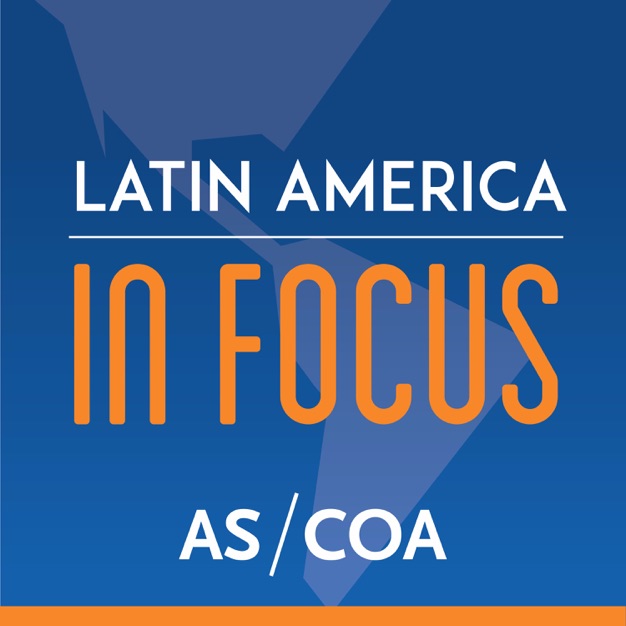 Latin America in Focus
Latin America in Focus
 Deep South podcast
Deep South podcast
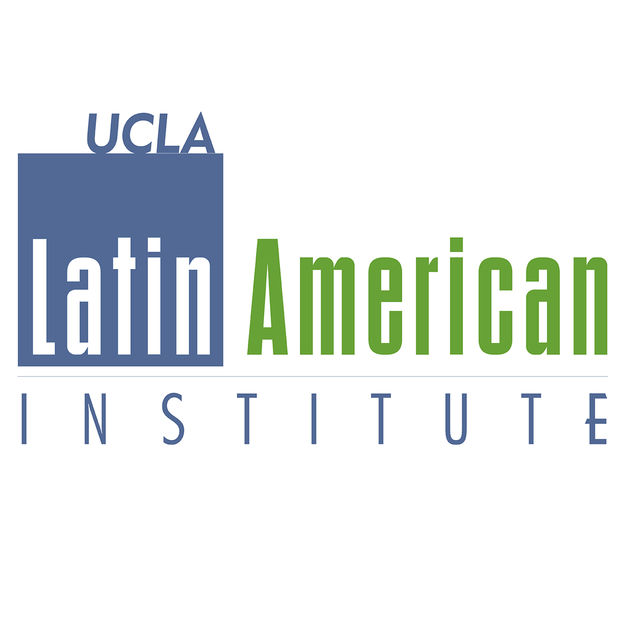 UCLA Latin America Institute Podcasts
UCLA Latin America Institute Podcasts
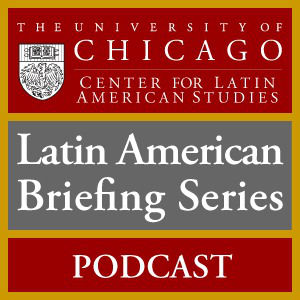 The Latin American Briefing Series
The Latin American Briefing Series
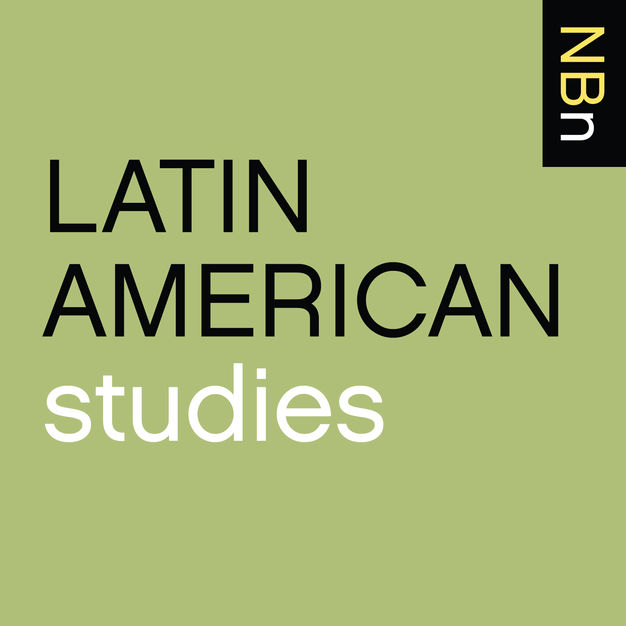 New Books in Latin American Studies
New Books in Latin American Studies
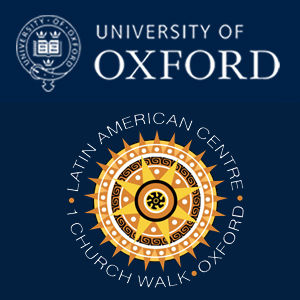 Latin American Centre
Latin American Centre